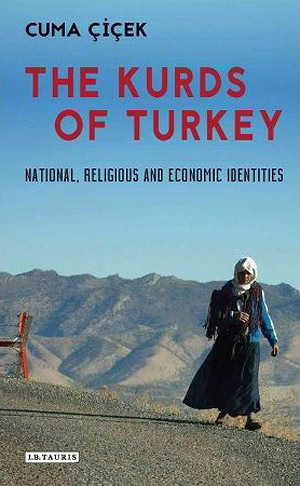Книга
 Курды Турции: национальная, религиозная и экономическая идентичность
Курды Турции: национальная, религиозная и экономическая идентичность
Кума Чичек
I. B. Tauris
2017, 336 стр.
ISBN: 9781784535452
ссылка
Курды Турции - не однородная группа. Это то, что часто упускается из виду. На самом деле, курды в Турции имеют много различных политических и идеологических установок. Сосредоточение внимания на элитах этих неформальных групп - национальных, религиозных и экономических - автор анализирует последствия разделов и перспективы достижения консенсуса. Используя инновационную теоретическую структуру, основанную на конструктивизме, модели «трех» и разных направлений социологии, он рассматривает динамику, которая влияет на курдов в Турции по таким разным вопросам, как централизованное государство, геополитика, национализм, европеизация и глобализация. При этом он изучает процесс достижения консенсуса в 1999-2015 годах и представляет возможный путь к объединенному курдскому политическому государству. Глубокая и тщательно исследованная работа добавляет незаменимый нюанс концепции курдского сообщества. Это важная книга для студентов и исследователей, интересующихся историей, настоящим курдов и их будущим в Турции и на Ближнем Востоке.
English synopsis
The Kurds of Turkey: National, Religious and Economic Identities
Cuma Çiçek
The Kurds of Turkey are not a homogenous group. This is something that is often overlooked. In fact, Kurds in Turkey have many diverse political and ideological orientations. Focusing on the elites of these informal groups-national, religious and economic-Cicek analyses the consequences of the divisions and subsequent prospects of consensus building. Using an innovative theoretical framework founded on constructivism, the 'three 'I's' model and various strands of sociology, Cicek considers the dynamics that affect the Kurds in Turkey across issues as diverse as the central state, geopolitics, nationalism, Europeanisation and globalisation. In so doing, he examines the consensus-building process of 1999-2015 and presents the possible route to a unified Kurdish political state. Cicek's in-depth and meticulously researched work adds an indispensable layer of nuance to our conception of the Kurdish community. This is an important book for students or researchers with an interest in the history and present of the Kurds and their future in Turkey and across the Middle East.


